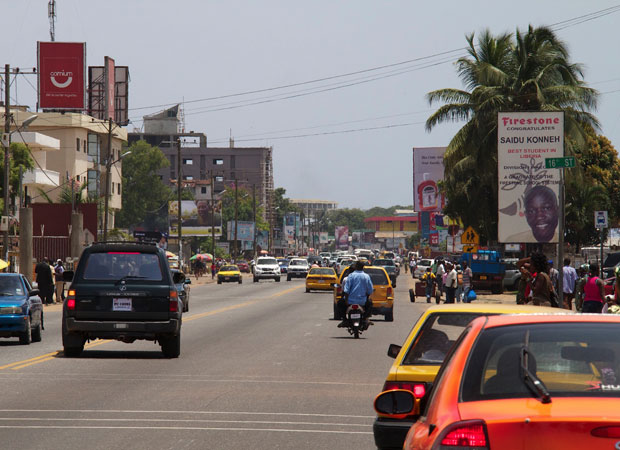Global News and Journalists for Human Rights have teamed up to send four Global News reporters to Africa as part of the Shaw Africa Project.
Barry Acton of Global National and Laurel Clark of Global Edmonton were recently in Liberia. Global News followed their journey and their work over the course of several weeks.

Signs of renewal line every street in Liberia’s bustling and vibrant capital, Monrovia. The word “Rebuild” is used over and over again in billboards at major intersections and on posters decorating storefronts. “Rebuild Liberia.” “Rebuild Health care.” “Rebuild Education.” It’s the motto of a nation determined to grow after a brutal and crippling 14-year civil war.
Liberia’s history is both fascinating and troubling. The lush, West African nation was founded by freed American slaves. The country became independent of the U.S. in 1847 and by the early 1900s it was exporting goods like coffee and palm oil beyond its borders. By the middle of the century, the rubber, iron ore and timber industries were booming.
The unrest came in the late 1970s when dozens were killed in riots against a proposed hike in the price of rice. In her memoir, President Ellen Johnson Sirleaf writes, “It was the beginning of the end of the political system that had dominated my country for more than 100 years.” She adds that people began to protest for better roads, hospitals and schools – but the government of the day didn’t take the opportunity to better the lives of Liberians.

Get daily National news
Fraudulent elections, military coups and the execution of two presidents punctuated the years that followed. Charles Taylor and his troops began taking control of sections of Liberia’s countryside in 1989. Fighting among his troops and rebel groups terrorized the country, even after he became president. Taylor resigned in 2003. Caving to international pressure, he left the country. Some estimates peg the death toll from Liberia’s civil conflict at 250,000.
RELATED: Taylor’s war crimes in neighbouring Sierra Leone
In 2006, Liberians longed to ensure a peaceful future with a more stable government. They elected Ellen Johnson Sirleaf, a Liberian-born Harvard graduate. Johnson Sirleaf has been called the “Iron Lady of Liberia” for her fiscal restraint but she is affectionately known by some Liberians as “Ma Ellen.” She is Africa’s first elected female president and a Nobel Peace Prize Winner.
It will take years before Liberia can stand on its own. The country still relies on international aid. The UN has authorized close to 15,000 military personnel to ensure peace. And more than 1,000 police officers from across the globe have been assigned to the mission.
But if you take a step back from the statistics, you can see progress.
It could be as significant as watching oil companies salivate over contracts in the region or seeing new buildings popping up on the main streets of Monrovia.
Perhaps it’s more subtle. A simple hope for a peaceful future where Liberians continue to unite – and rebuild.






Comments